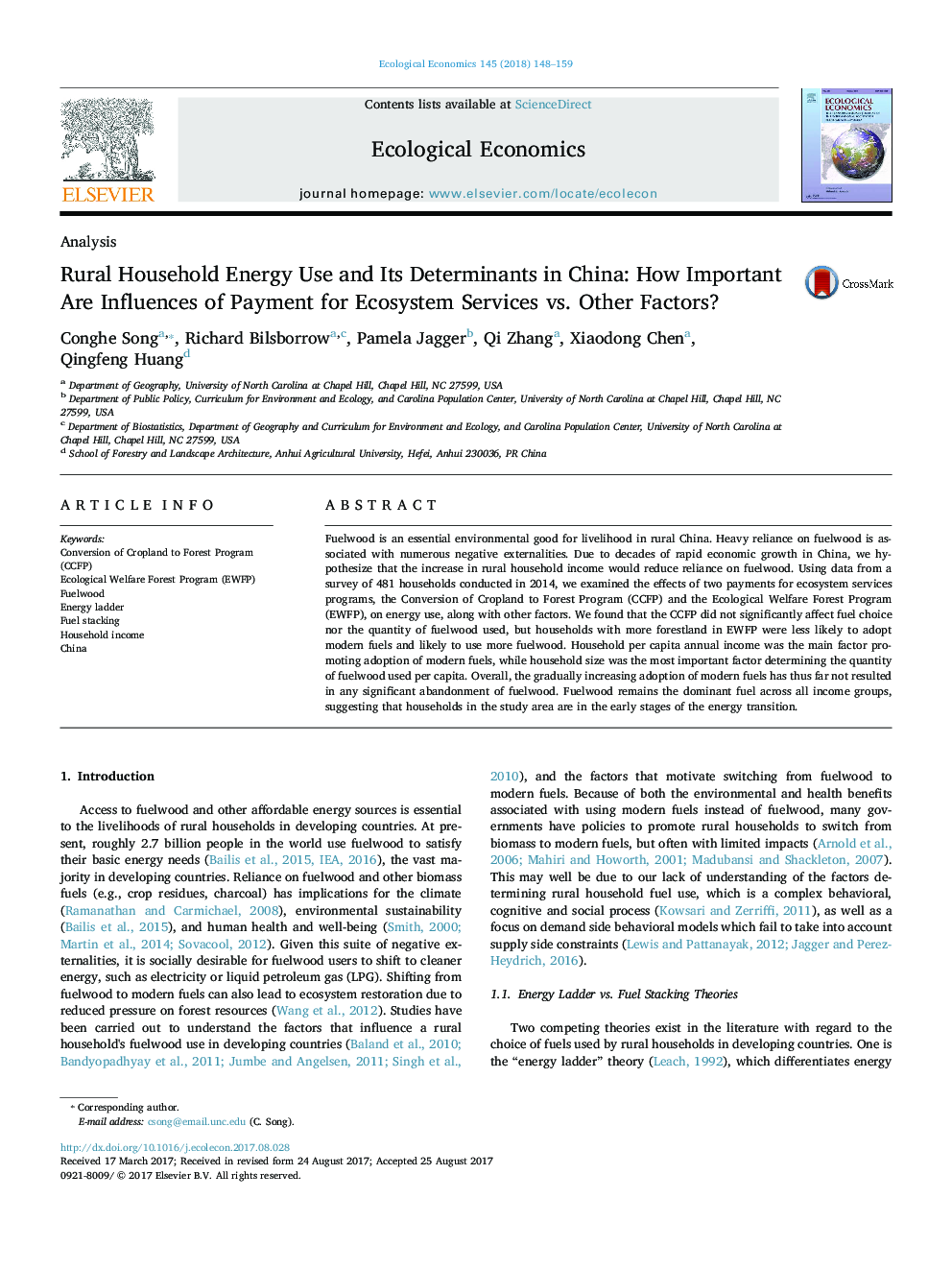| Article ID | Journal | Published Year | Pages | File Type |
|---|---|---|---|---|
| 5048601 | Ecological Economics | 2018 | 12 Pages |
â¢Participation in Conversion of Cropland to Forest Program did not affect rural households on fuel use.â¢Households with land in Ecological Welfare Forest Program are associated with more fuelwood use.â¢Evidences were found to support both energy ladder theory and fuel stacking theory.â¢Energy Transition in rural China is still in the early stage.
Fuelwood is an essential environmental good for livelihood in rural China. Heavy reliance on fuelwood is associated with numerous negative externalities. Due to decades of rapid economic growth in China, we hypothesize that the increase in rural household income would reduce reliance on fuelwood. Using data from a survey of 481 households conducted in 2014, we examined the effects of two payments for ecosystem services programs, the Conversion of Cropland to Forest Program (CCFP) and the Ecological Welfare Forest Program (EWFP), on energy use, along with other factors. We found that the CCFP did not significantly affect fuel choice nor the quantity of fuelwood used, but households with more forestland in EWFP were less likely to adopt modern fuels and likely to use more fuelwood. Household per capita annual income was the main factor promoting adoption of modern fuels, while household size was the most important factor determining the quantity of fuelwood used per capita. Overall, the gradually increasing adoption of modern fuels has thus far not resulted in any significant abandonment of fuelwood. Fuelwood remains the dominant fuel across all income groups, suggesting that households in the study area are in the early stages of the energy transition.
